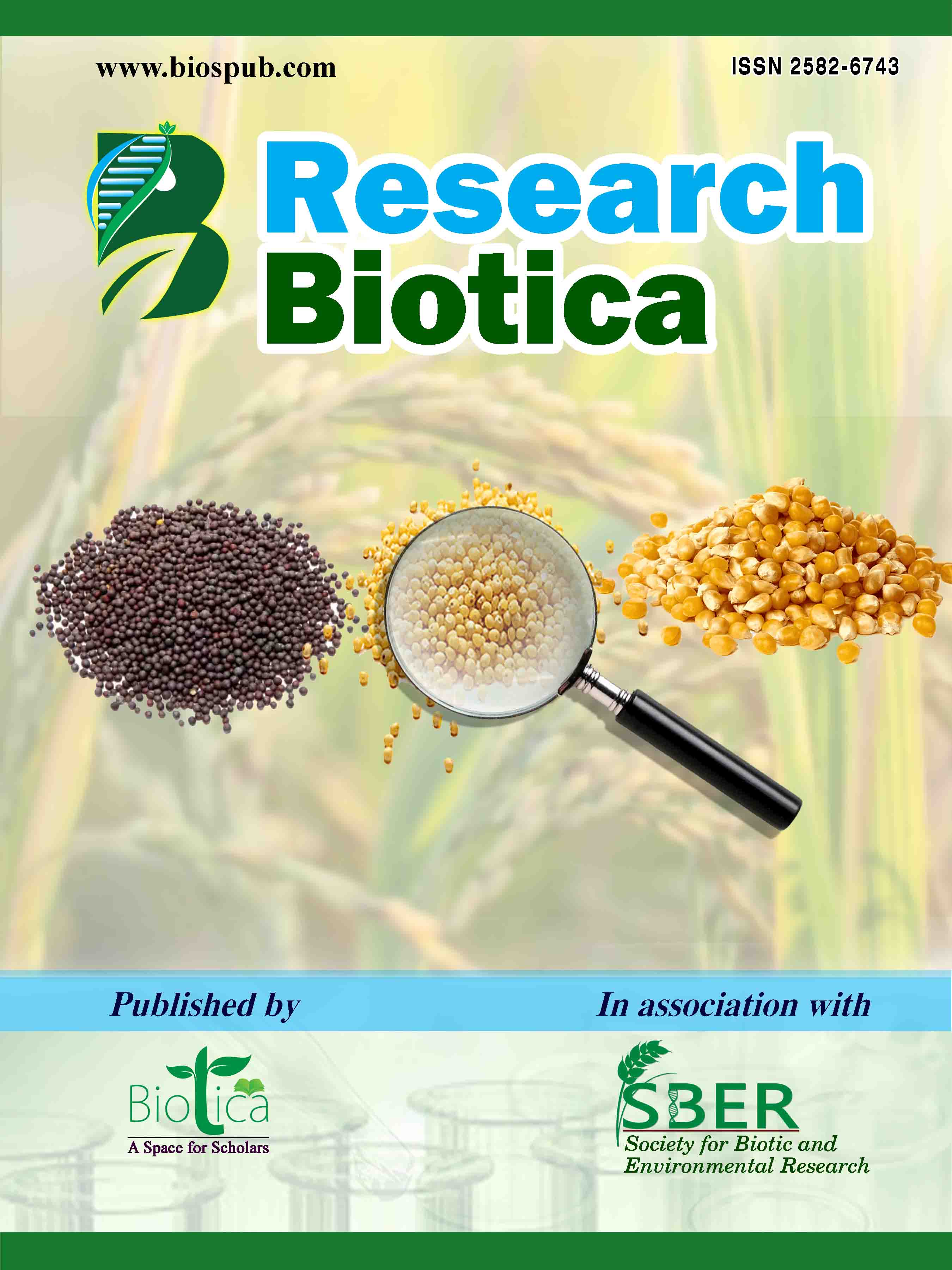IDIPM Schedule: Key to Manage the Bacterial Blight Disease in Pomegranate
Keywords:
Bactericides, Balanced plant nutrition, Bio-formulations, Orchard sanitationAbstract
The ICAR-National Research Centre on Pomegranate, Solapur formulated ‘Integrated disease and insect-pest management (IDIPM) schedule comprising of (i) avoiding rainy season crop for 2 years, (ii) balanced plant nutrition, (iii) orchard sanitation, (iv) use of bactericides with compatible fungicides and insecticides and (v) bio-formulations and elicitor molecules that trigger systemic acquired resistance in plants for mitigating the losses caused by bacterial blight disease in pomegranate through expert consultation. The schedule was validated in farmers’ orchards spanning over diverse agro-eco-regions in the state of Maharashtra, Karnataka and Andhra Pradesh. Bacterial blight was managed successfully (86.04% reduction) with conspicuous improvement in yield (yield increased up to 79.5%). This resulted in average cost-benefit ratio of 1:4.19 and reduction in number of chemical sprays. The IDIPM schedule has become the life line of pomegranate growers. The reproducibility of the technology can be evidenced from consistent increase in national pomegranate productivity ranging from to 6.9 t ha-1 in the year 2011-12 to 11.67 t ha-1 in the year 2016-17 (69.13% increase).









 |
|